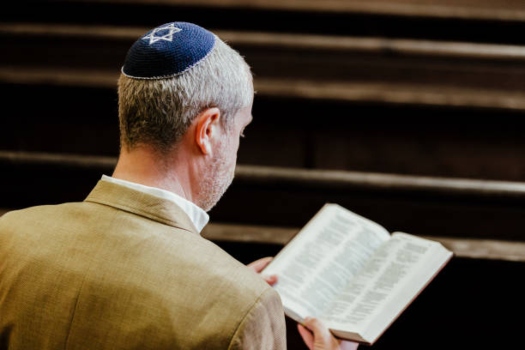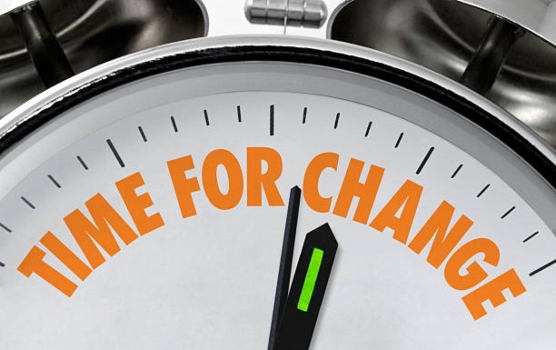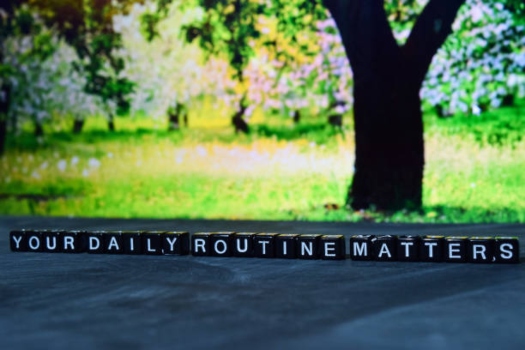That is, If the Routine Includes Doing Good Things
A routine is doing tasks, chores, or duties at a regular or specific interval or time. It is a habitual procedure constantly repeated.
Prayer is a good routine to have.
This is part of the Jewish religion. The Jewish Law calls for praying three times daily. In the morning, the afternoon, and at nightfall. The morning prayer is called (shacharit), the afternoon prayer (minchah), and the evening prayer (arvith or maariv).

It is taught that the custom of praying three times a day was introduced by the Patriarchs: Abraham, Isaac, and Jacob. Abraham introduced prayer in the morning, Isaac in the afternoon, and Jacob added one at night.
Routines can help you stay organized, be productive, and even find meaning. Certain studies have associated family routines with parenting competence and marital satisfaction.
Not all routines are created equal and failing to examine or alter bad habits can have a negative effect on our lives.
Habitual behavior can cause us to be unaware. A series of habits can set us on autopilot. This can lead to losing touch with who we are made to be.
For example, scrolling through our phone can seem pretty harmless, but we may be missing out on interaction with others. Similarly, items we pressure ourselves to include in our routines may be taking up time that could be used for better things.
Whatever our personal habits may be, it’s worth considering the ways they may be affecting us negatively. These routines may prevent us from engaging with the world around us.
Routines can start out with good intentions, but the good can get lost in the routine.

If we are doing the routine just to do it, we may have lost the reason behind why we’re doing it.
Going back to Jewish routines, many of the Sadducees and Pharisees in the Old Testament got caught up in the routines and forgot the why.
We need to periodically step back and ask ourselves why. Why are we doing this routine? Is it still an effective part of who we are and what we’ve been put here to accomplish?
As for the Jewish prayer routine, they consider Psalm 4 an evening prayer. It is one of David’s Psalms. In this Psalm, David:
- Talks to and gives God his problems
- Speaks to the people and reminds them that he was called by God
- Advises the people to not hold on to their anger, to not dwell on their anger overnight, and to give their anger to God
- Trusts in God
- Asks God for peace and joy
Praying regularly and often is a good way to stay connected with God. This can be especially true as we come to the end of our busy days.

There can be a sense of guilt when falling asleep before you’re finished praying. It’s okay…it’s like falling asleep in your parent’s arms.
Prayers don’t need to be some elaborate thing. They can be simple. Like the “Now I Lay Me Down to Sleep” prayer that many of us learned as a kid. I found out in the children’s message Sunday that there are variations to this prayer.
Here’s one I really liked –
Thank you Lord for another day,
The chance to learn, the chance to play.
Now as I lay me down to sleep,
I pray the Lord my soul to keep.
Please, guard me Jesus through the night,
And keep me safe till morning’s light.
But if I should I die before I wake,
I pray the Lord my soul to take.
And should I live for other days,
I pray that God will guide my ways.
Amen.
Routines help us remember to do things. But we need to do the right routines for the right reasons.
It’s important to be intentional with our routines.

